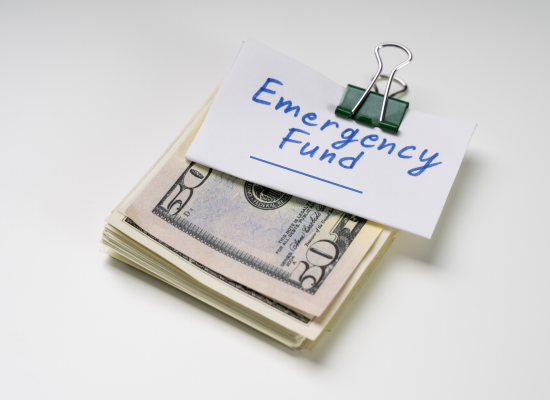Managing money can be challenging, especially when you’re just starting your financial journey. Beginners often make mistakes that can lead to debt, stress, and missed opportunities for growth. However, by understanding these common pitfalls and learning how to avoid them, you can build a strong financial foundation and work toward your goals. In this article, we’ll explore the top mistakes people make with their money, explain their impact, and share practical tips to steer clear of them. Please note: this information is for educational purposes only and not financial advice.
Why Avoiding Financial Mistakes Matters
Financial mistakes can have a ripple effect, derailing your progress and making it harder to achieve stability or long-term goals. For example, overspending on a credit card can lead to high interest charges, while missing payments can hurt your credit score. These missteps can also reduce the money you have for saving or investing, slowing your path to wealth-building through compounding. By avoiding these mistakes, you’ll have more money to allocate toward priorities like an emergency fund, investments, or saving for college and retirement, setting yourself up for success in the long run.
Top Financial Mistakes and How to Avoid Them
Here are some of the most common money mistakes beginners make, along with solutions to avoid them:
1. Not Having a Budget
The Mistake: Many people spend without a plan, leading to overspending and little to no savings. Without a budget, you might not realize you’re spending $500 a month on dining out until you’re struggling to pay rent.
The Impact: Overspending can force you to rely on credit cards, racking up debt and interest. It also means you’re not saving for emergencies or investing for the future.
How to Avoid It:
- Create a simple budget using the 50/30/20 rule. For example, if your net pay is $3,000, allocate $1,500 to needs, $900 to wants, and $600 to savings and investments.
- Track your spending with tools like Mint or a spreadsheet to stay within your limits.
- Review your budget monthly to adjust for changes, ensuring you always know where your money goes.
2. Ignoring the Importance of an Emergency Fund
The Mistake: Not having an emergency fund leaves you vulnerable to unexpected expenses, like a $1,000 car repair or medical bill. Without savings, you might turn to credit cards or high cost loans to cover these costs.
The Impact: Relying on credit increases your credit utilization, which can lower your credit score if it exceeds 30%. It also leads to interest charges—for example, a $1,000 balance at 20% APR accrues $16.44 in interest in one month. You also risk snowballing your debt balances up to a point where it becomes very difficult to pay them down.
How to Avoid It:
- Start building an emergency fund aiming for 3–12 months of expenses, depending on your safety needs. For $2,000 monthly expenses, aim for an emergency balance of $6,000 (3 months of expenses) –$24,000 (12 of expenses), depending on your situation.
- Begin with a small goal, like $500, and automate $50 monthly transfers to a high-yield savings account.
- Use windfalls, like a $1,000 tax refund (from “What Are the Basics of Understanding Your Paycheck and Taxes?”), to boost your fund.
3. Carrying a Credit Card Balance
The Mistake: Many people don’t pay their credit card balance in full each month, thinking the minimum payment is enough. For example, if you have a $2,000 balance at 20% APR and only pay the minimum (say, $60), most of your payment goes toward interest, not the principal.
The Impact: You’ll accrue significant interest—$2,000 at 20% APR adds $33.42 in interest in one month. Over time, this makes debt harder to pay off and reduces money available for savings or investments.
How to Avoid It:
- Pay your statement balance in full by the due date to avoid interest, taking advantage of the grace period.
- Budget for credit card spending within your “wants” category (e.g., $300 of your $900 “wants” budget) to ensure you can pay it off.
- If you do have a credit card balance, prioritize paying it off completely.
4. Missing Credit Card Payments
The Mistake: Forgetting to pay your credit card bill by the due date can lead to late fees and credit score damage. For example, missing a $500 payment due on the 25th of the month triggers a late fee and penalty APR if it’s 30 days late.
The Impact: A late payment (30+ days) can drop your credit score by 60–100 points. You’ll also face a late fee ($25–$40) and possibly a penalty APR (e.g., 29.99%), increasing your interest costs significantly.
How to Avoid It:
- Set up payment reminders or autopay to ensure you pay at least the minimum (ideally the full balance) by the due date.
- Budget for credit card expenses,
- If you miss a payment, contact your card issuer immediately to request a fee waiver—many will waive the first late fee as a courtesy.
5. Spending More Than You Earn
The Mistake: Living beyond your means—spending more than your net pay—leads to debt and financial strain. For example, if your net pay is $3,000 but you spend $3,500, you’re short $500, which you might cover with a credit card.
The Impact: This creates a cycle of debt, as you’ll struggle to pay off the $500 while accruing interest, leaving less money for savings or investments. It also increases your credit utilization, hurting your credit score.
How to Avoid It:
- Use your net pay, not gross pay, to set spending limits. If your net pay is $3,000, your budget should not exceed this amount.
- Cut back on “wants” if you’re overspending—e.g., reduce dining out from $400 to $200 to stay within your $900 “wants” budget.
- Track your spending weekly to catch overspending early, adjusting before the month ends.
6. Not Saving or Investing Early
The Mistake: Many beginners delay saving or investing, thinking they’ll start later when they earn more. For example, skipping a $100 monthly investment in an index fund at age 25 means missing out on significant growth by age 65.
The Impact: You lose the power of compounding. Investing $100 monthly at a 7% return from age 25 to 65 grows to $243,000, but starting at 35 only yields $119,000—a difference of $124,000 due to 10 years of lost growth.
How to Avoid It:
- Start small by allocating even $50 monthly to savings or investments in your budget’s “savings/investment” category.
- Automate contributions to a high-yield savings account for your emergency fund or an index fund for long-term growth.
- Prioritize investing early, even if it’s just $25 monthly, to take advantage of compounding over time.
How Avoiding These Mistakes Supports Your Financial Journey
Avoiding these mistakes helps you build a solid financial foundation:
- Budgeting and Tracking: Creating a budget and tracking expenses (Mistakes 1 and 5) ensures you live within your means, leaving money for savings and investments.
- Credit Card Management: Paying off credit cards in full and on time (Mistakes 3 and 4) avoids interest and protects your credit score.
- Saving and Investing: Building an emergency fund and starting to invest early (Mistakes 2 and 6) secures your finances and maximizes growth.
Final Thoughts
Financial mistakes are common, but they’re avoidable with the right knowledge and habits. By creating a budget, building an emergency fund, managing credit cards responsibly, living within your means, tracking expenses, and starting to save or invest early, you can steer clear of these pitfalls. These steps not only protect your finances but also support your long-term goals, like building credit, saving for emergencies, or growing wealth through investing.
As you grow your financial knowledge, think about how avoiding these mistakes fits into your overall plan. For personalized guidance, consider speaking with a financial advisor to create a strategy that works for you. With the right approach, you can turn potential mistakes into opportunities for financial success.


